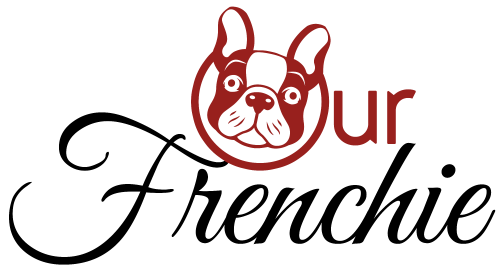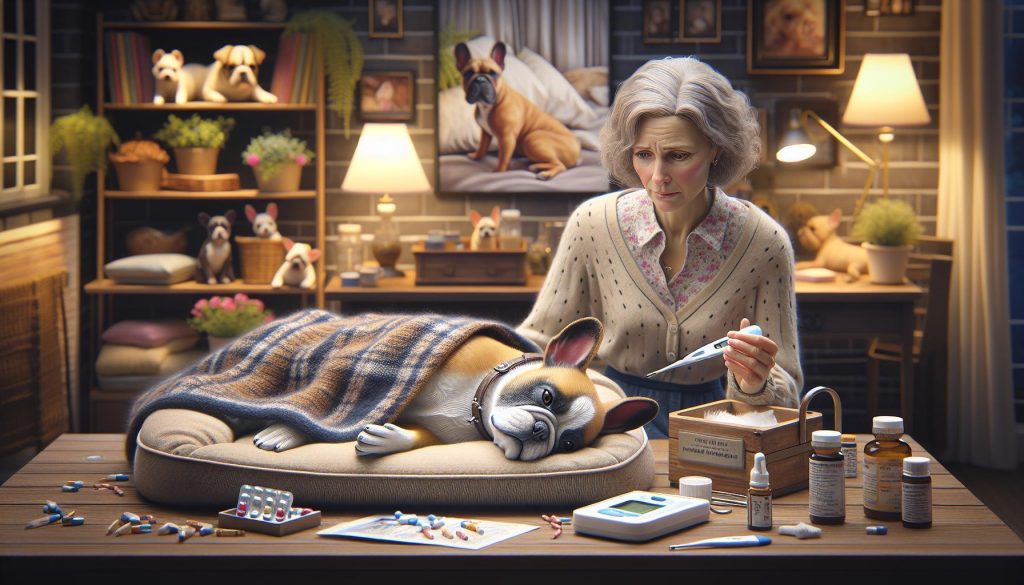About
What to Do If Your French Bulldog Gets Sick
Page Contents
When your beloved french Bulldog falls ill, it can be a distressing experience for both you and your furry friend. These charming companions, known for their playful personalities and affectionate nature, require special care when under the weather. Understanding the steps to take when your French Bulldog gets sick is crucial to ensuring their swift recovery and maintaining their overall well-being. From recognizing early symptoms to seeking professional veterinary care, this guide will provide you with practical advice and peace of mind during such challenging times.
Recognizing Early Signs of Illness
As a French Bulldog owner,being attuned to subtle changes in your pet’s behavior and physical condition can make a significant difference in their health. **early recognition of illness** can lead to faster treatment and a better prognosis. It’s essential to observe your dog’s daily habits closely, as these can provide valuable clues about their well-being.
Look out for **changes in appetite** or drinking habits. If your Frenchie suddenly shows a lack of interest in food or water, or conversely, an increase in consumption, it might indicate an underlying issue.Similarly,monitor their **energy levels**; a usually playful dog that becomes lethargic might be unwell. Be mindful of any **unusual behaviors** such as restlessness, excessive licking, or hiding, as these can also be signs of discomfort.
- **Physical symptoms** to watch for include vomiting, diarrhea, coughing, or sneezing.
- Check for **changes in breathing patterns** or any signs of distress.
- Inspect their skin and coat for **rashes, lumps, or bald spots**.
- Pay attention to their eyes and ears for any **discharge or redness**.
By keeping a close eye on these indicators, you can ensure that any potential health issues are addressed promptly, helping your French Bulldog live a happy and healthy life.
Consulting a Veterinarian Promptly
When your French Bulldog shows signs of illness, reaching out to a veterinarian should be your first course of action. A professional evaluation is crucial because French Bulldogs are prone to certain health issues, such as **brachycephalic obstructive airway syndrome** and **allergies**, which require specialized care. A vet can quickly assess symptoms and recommend appropriate treatments, ensuring your pet receives the best possible care.
It’s significant to provide the vet with detailed data about your dog’s symptoms, including:
- Changes in appetite or water intake
- Unusual behaviors or lethargy
- any vomiting, diarrhea, or coughing
- Breathing difficulties
- Skin irritations or unusual odors
**Timeliness** is key when dealing with potential health issues. Delaying a veterinary visit can exacerbate the problem, making it more difficult and expensive to treat. Always have your veterinarian’s contact information readily available, and consider finding an emergency vet clinic in your area for after-hours care. Your prompt action can make a significant difference in your French Bulldog’s recovery and overall well-being.
Home Care Tips for Sick Bulldogs
- Maintain Hydration: Ensure your French Bulldog has access to fresh water at all times. Dehydration can exacerbate symptoms and slow recovery, so encourage small, frequent sips if your pet is reluctant to drink.
- Create a Cozy Resting Area: Designate a quiet, cozy spot for your bulldog to rest. Use soft bedding and keep the area at a comfortable temperature. Avoid drafts and loud noises to help reduce stress and facilitate healing.
- Monitor Their Diet: Offer easily digestible foods,such as boiled chicken or rice,if your bulldog is experiencing digestive issues. Consult with your veterinarian about any dietary changes to ensure nutritional needs are met.
**Observe Behavior and Symptoms:** Keep a close eye on your bulldog’s symptoms and behaviors.Note any changes in appetite, energy levels, or bathroom habits. This information can be vital for your veterinarian to assess the situation accurately.
**Administer Medication Carefully:** If your veterinarian prescribes medication, follow the dosage instructions meticulously. Use a treat or a small amount of food to help your pet swallow pills, and never give human medication without professional guidance.
Dietary adjustments for Recovery
When your French Bulldog is on the mend, making thoughtful dietary adjustments can significantly aid their recovery. Start by offering a bland diet that is gentle on their stomach. Consider feeding them boiled chicken or turkey mixed with plain white rice or pumpkin. This combination is easily digestible and can help soothe any gastrointestinal discomfort.
Incorporate foods that are rich in essential nutrients to boost their immune system. Omega-3 fatty acids found in fish oil can be beneficial, as well as foods high in antioxidants like blueberries or sweet potatoes. However, always introduce new foods gradually to avoid further digestive upset.
- Hydration is key: Ensure your dog has plenty of fresh water available at all times.
- Small, frequent meals: Instead of one or two large meals, offer smaller portions throughout the day to help with digestion.
- Monitor their appetite: Keep an eye on how much your pet is eating and adjust portions as necessary.
Consult with your veterinarian before making any significant changes to your french Bulldog’s diet, especially if they have specific health conditions that require tailored nutritional plans. Their guidance will ensure your pet receives the best possible care during their recovery.
Managing Medication and Treatments
When your French Bulldog falls ill, one of the critical steps is ensuring they receive the right medication and treatments. **Consult your veterinarian** to get a precise diagnosis and a tailored treatment plan. Always follow the vet’s instructions regarding dosage and administration times to ensure the efficacy of the medication. Missing doses or incorrect administration can lead to complications or prolonged recovery.
- **Create a medication schedule**: Use alarms or reminders to keep track of medication times and ensure consistency.
- **Monitor side effects**: Keep an eye out for any adverse reactions your dog may have to the medication.Common side effects can include vomiting, diarrhea, or changes in behavior.
- **Keep a treatment log**: Document the medication given,dosages,and any observed reactions. This record can be invaluable for follow-up visits with your vet.
Along with medication, consider complementary treatments that may aid in your dog’s recovery. **hydration and nutrition** play pivotal roles in healing. Ensure your French Bulldog has access to fresh water and a balanced diet that supports their specific health needs. Discuss with your vet about supplements or dietary changes that could bolster their immune system or address specific conditions. Lastly, maintain a calm and comforting habitat to reduce stress, which can impede the healing process.
Preventing Future Health Issues
Taking proactive steps can significantly reduce the risk of your French Bulldog encountering health issues in the future. Start by ensuring they have a **balanced diet** tailored to their specific needs. Consult with your veterinarian to determine the best nutritional plan,as French bulldogs are prone to obesity,which can exacerbate other health problems. Consider incorporating high-quality dog food with the right balance of proteins,fats,and carbohydrates,and avoid overfeeding or giving too manny treats.
**Regular veterinary check-ups** are crucial for early detection and prevention of potential health issues. schedule routine visits to monitor your dog’s overall health, update vaccinations, and address any concerns you might have. During these visits, discuss preventive measures like heartworm prevention, flea and tick control, and dental care. Keeping up with these appointments helps catch problems early and keeps your French Bulldog in optimal health.
- **Exercise and mental stimulation**: Engage your French Bulldog in regular physical activities and mental exercises to keep them fit and mentally sharp. Short walks, playtime, and interactive toys are excellent ways to maintain their physical health.
- **Maintain a clean environment**: Ensure your dog’s living space is clean and free from hazards. Regularly clean their bedding and toys to prevent infections and infestations.
- **Monitor for signs of common breed-specific issues**: Be vigilant about symptoms of brachycephalic airway syndrome, skin allergies, and hip dysplasia. Early intervention can prevent these conditions from worsening.
The Conclusion
taking swift and informed action is crucial when your French Bulldog falls ill. By recognizing the symptoms,consulting with a veterinarian,and providing the necessary care,you can ensure your beloved pet receives the best possible treatment. Remember, your vigilance and love play a significant role in their recovery. Stay informed and proactive, and your furry friend will be back to their playful self in no time. For ongoing support, consider joining a community of French bulldog enthusiasts who can offer advice and share experiences. Your pup’s health is worth every effort.

